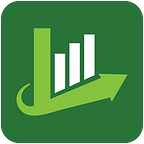Swing Trading vs. Day Trading: What Is The Difference?
Swing trading and Day trading are both wonderful trading approaches for short-term profit generation. Yet, they are not the same, and learning their differences can help you choose a more suitable type of investing! This article points out the main points that distinguish the two!
What Is Swing Trading?
Swing trading means that you should determine swings in stocks, commodities, and currencies. The time frame is over days! Specifically, it may take from days to weeks to be completed.
Such a time frame makes it possible for those who have other full-time jobs. It means that you can swing trade without being glued to the monitoring screens all day with intense focus.
Advantages Of Swing Trading
- Swing trading welcomes anyone who has trading knowledge and ready capital for investment.
- Days-to-Weeks trading enables you to swing trade without quitting your full-time jobs.
- You can set stop losses when swing trading, which minimizes possible losses or keeps them under control.
- The upfront investment of swing trading is less in comparison to day trading. You can start your swing trades with a computer and some fundamental trading tools.
Disadvantages Of Swing Trading
- You might be willing to be illiquid for periods when the time to exit your position is appropriate.
- Larger returns are possible as you can deal with higher risks of accumulated losses.
- The excitement of swing trading is much lower than the one of day trading as you sit on swing trades for days and even weeks.
What Is Day Trading?
Day trading includes trades, such as buying and selling securities, within a single day. Insights from technical analysis and charting systems play an essential role in viable strategy development. So, you can detect trading patterns and determine the best timing for entering and exiting opportunities.
There are many instruments that an individual can day trade, such as stocks, commodities, currencies, etc. The ultimate goal of day trading is to earn quick returns on the investment overnight.
Benefits Of Day Trading
- Instant small returns are possible as you wrap up trades and determine losses and wins at the end of a trading day.
- Independent and flexible working is a dream for many people as they have a proactive role in time management and productivity.
- You do not have to graduate from any universities or schools to become a day trader. All you need to do is to learn technical analysis, and financial markets, and prepare budgets.
Drawbacks Of Day Trading
- A strong financial backup is a must as you might have to suffer from losses in the first months, according to the U.S. Securities and Exchange Commission (SEC).
- Day traders usually have to spend much on trading platforms, charting software, computing devices, etc. to compete against others in the market.
- Day traders also have to pay ongoing expenses to obtain live price quotes and commission expenses.
- Stressful days are what a day trader needs to be mentally ready for.
What Are The Main Differences Between Swing Trading And Day Trading?
After a walkthrough of the features of swing trading and day trading, the following content highlights some noticeable differences.
Day Trading
- It is possible to make more than one trade per day.
- Day trades last from hours to days.
- It should be a full-time job.
- Short-term buy and sell signals are what day traders pay attention to.
- Day traders should depend on the latest trading platforms and tools.
- Smaller gains mean smaller losses.
Swing Trading
- There are several trades per week.
- Time frame of swing trading is from days to weeks.
- People usually take it as a part-time job for passive income.
- Swing traders take advantage of indicators for insights into trends and momentums.
- You can accomplish swing trading with a basic brokerage account.
- Bigger gains mean you need to be ready for bigger losses.
Day trading should be a choice for individuals who are willing to commit their time and energy to trade. Also, they need to have strong traits of decisiveness, discipline, and diligence to maintain profits at high and consistent levels. Reversely, the slow pace of swing trading is ideal for an individual who does not want to quit their full-time job but wants to enrich their accounts.
What’s Better Swing Trading vs. Day Trading?
Both of these trading types are two different approaches that you can consider for short-term investment. So, it comes back to the most basic things about what you want and how ready you are to commit time and effort to trade.
Based on the characteristics of day trading and swing trading, you can find out the most suitable short-term investment type. If you are into exciting, risky trades for quick returns, day trading is what you need. Otherwise, you can slow down your trading days but expect larger gains by swing trading.
You should also read other related articles, including
Day Trading vs. Investing: Which Is Better?
Inside The Notes Of A Successful Day Trader — Part 1
Inside The Notes Of A Successful Day Trader — Part 2
Inside The Notes Of A Successful Day Trader — Part 3
The simplification of trading knowledge, techniques, and the updates of trading news are what we try our best to help you with. Please subscribe to our Medium profile to be among the first to read our blogs!
